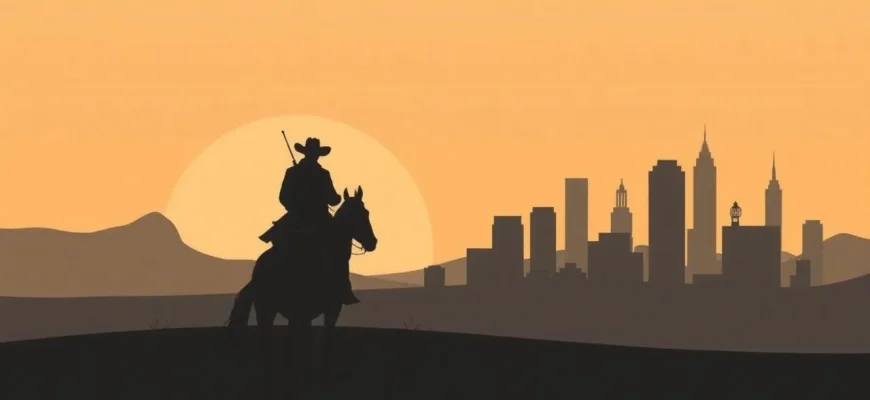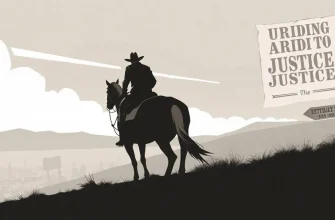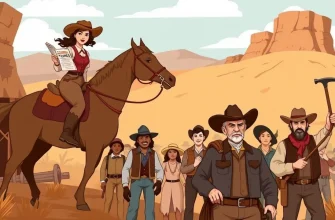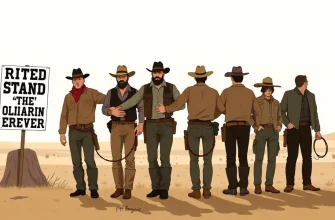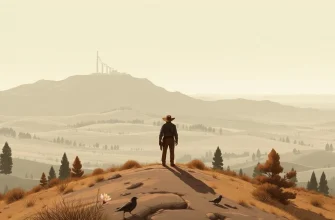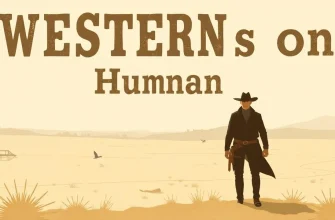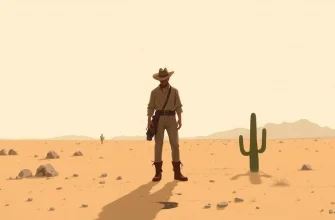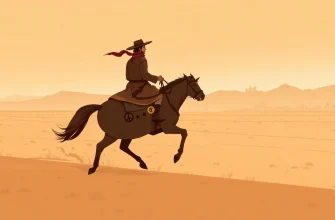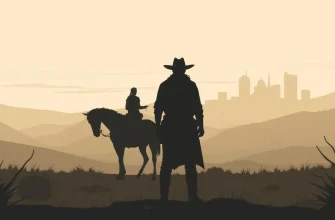The Western genre, often associated with tales of rugged individualism and frontier justice, has also been a fertile ground for exploring themes of social change. These films not only entertain but also provide a lens through which we can examine the evolution of society, the clash of cultures, and the struggle for justice and equality. Here are 10 Western films that capture the essence of societal transformation, each offering a unique perspective on the historical and cultural shifts of their times.

The Ox-Bow Incident (1943)
Description: This film explores mob justice and the moral ambiguity of vigilante law, reflecting on the societal changes regarding law enforcement and justice.
Fact: It was one of the first Westerns to seriously address the theme of mob violence and its consequences.
 Watch Now
Watch Now 
High Noon (1952)
Description: This film uses the Western setting to explore themes of duty, community, and the individual's role in societal change, particularly during the McCarthy era.
Fact: It was initially interpreted as an allegory for the Hollywood blacklist, with the town's refusal to help the marshal symbolizing the industry's cowardice.
 Watch Now
Watch Now 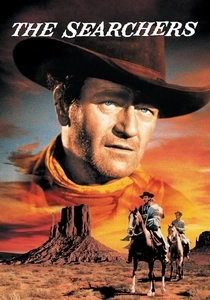
The Searchers (1956)
Description: John Ford's masterpiece deals with themes of racism, revenge, and the transformation of the American frontier, showcasing the changing attitudes towards Native Americans.
Fact: The film was initially controversial for its portrayal of Native Americans, but it has since been reevaluated for its complex character development.
 Watch Now
Watch Now 
The Magnificent Seven (1960)
Description: This film, a remake of "Seven Samurai," explores themes of community defense, justice, and the role of outsiders in societal change.
Fact: It was one of the first films to feature an ensemble cast of diverse backgrounds, reflecting the changing demographics of the American West.
 Watch Now
Watch Now 
The Man Who Shot Liberty Valance (1962)
Description: A tale of civilization versus the lawless frontier, this film delves into the myth-making and the transition from the Old West to a more structured society.
Fact: John Ford, the director, famously said, "When the legend becomes fact, print the legend," which encapsulates the film's theme.
 Watch Now
Watch Now 
Little Big Man (1970)
Description: Through the eyes of Jack Crabb, this film examines the clash of cultures, Native American rights, and the changing landscape of the American West.
Fact: Dustin Hoffman's portrayal of an aging Jack Crabb was critically acclaimed, and the film was one of the first to depict Native Americans in a more sympathetic light.
 Watch Now
Watch Now 
The Outlaw Josey Wales (1976)
Description: This film follows a Confederate soldier's journey through a changing America, reflecting on themes of reconciliation and the end of the Civil War.
Fact: The film was directed by and starred Clint Eastwood, who also co-wrote the screenplay.
 Watch Now
Watch Now 
Dances with Wolves (1990)
Description: This epic film explores the relationship between a Union Army officer and the Lakota Sioux, reflecting on the impact of westward expansion on Native American tribes.
Fact: Kevin Costner, who also directed, won the Best Director Oscar for this film, which was a rare achievement for a Western.
 Watch Now
Watch Now 
Unforgiven (1992)
Description: Clint Eastwood's film challenges the myth of the heroic gunslinger, reflecting on the moral complexities and the end of the Wild West era.
Fact: Eastwood won the Best Director Oscar for this film, which was seen as a deconstruction of the Western genre.
 Watch Now
Watch Now 
The Ballad of Little Jo (1993)
Description: This film tells the story of Josephine Monaghan, who disguises herself as a man to survive in the harsh West, highlighting gender roles and societal expectations of the time.
Fact: The film was inspired by the real-life story of a woman named Josephine Monaghan who lived as a man in the 19th century.
 Watch Now
Watch Now 
